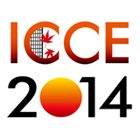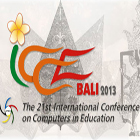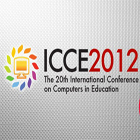The Workshop Description
With the rapid growth of computer-based technologies in the 21st century, computer-based learning environments have been recognized as a tool to motivate and facilitate students’ learning in several courses at all levels of education. To date, the onset of computer-based technologies advancement brings with its visions that new computer-based technologies can transform education in the fields of curriculum design, instructional research, and student learning. They have been applied in many different ways to assist students and teachers in the rhythm of learning and teaching process. Such computer-based technologies call for partnerships in which pedagogies are involved in instructional reform. Clearly, the effectiveness of computer-based technologies is closely connected to the pedagogy through which they are employed. If we wish to incorporate computer-based technologies, e.g. computer animation and simulation, computer game, augmented reality, web-based environment, mobile device, and so on into classrooms, we must re-thinking taking teaching pedagogy of technology use into account because technology itself can influence learning under certain conditions and with a proper process.
Based on this perspective, in the recent years, pedagogy has been recognized as one of the mechanisms in the computer-based learning movement in which computer-based technologies offer a number of opportunities and challenges for teaching and learning. In teaching and learning, computer-based technologies should be applied as a process rather than as a single, isolated, and discrete activity. Therefore, technological application should be based on sound teaching and learning principles and pedagogies to avoid teaching hardware and software technologies in an isolated manner. Pedagogy and computer-based technology should be considered as natural partners, in other words, computer-based technology should form part of the cohesive components of instruction; they should not be detachable objects. They can be provided by and supported through technologies, while pedagogies can encourage active approaches to the process of delivery and assessment of learning. The focus of any computer-related teaching and learning should not be on the technology itself, but on how computers can pedagogically use to improve students’ learning process. In order to make computer-based learning effectively, the use of innovative or emerging pedagogies such as inquiry-based learning approach, knowledge engineering approach, and collaborative learning approach for computer-based learning should be an important research issues.
To address this important issue, this workshop aims to explore the application of emerging pedagogies for computer-based learning from both research and educational practice perspectives.


